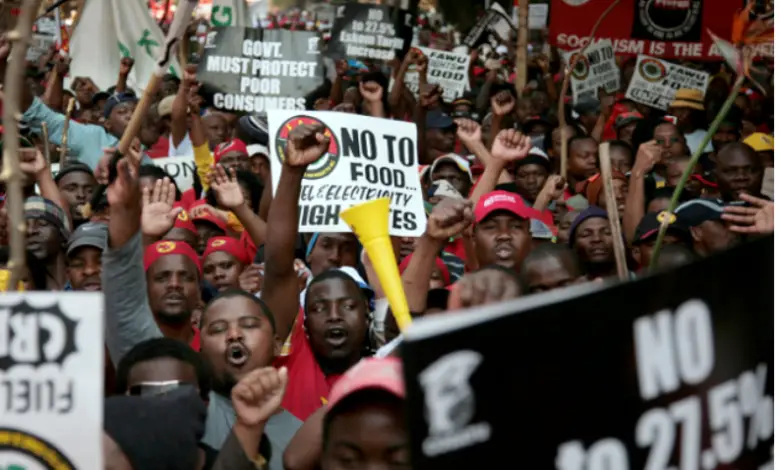National shutdown planned for South Africa as unions declare war on government

National shutdown planned for South Africa as unions declare war on government
SOURCE: BUSINESS TECH
_____
Major unions representing over 800,000 public sector workers have been granted a certificate of non-resolution by the Commission for Conciliation, Mediation and Arbitration (CCMA), setting the stage for a massive strike in South Africa.
The certificates were issued on Tuesday (1 November) following a collapse in negotiations between union leaders and the national government.
Finance minister Enoch Godongwana announced in his budget speech in October that a wage increase of 3% would be implemented unilaterally for public sector workers, pushing through the hike despite a demand from unions for a 10% increase.
In response, unions began picketing outside of the Public Service Co-ordinating Bargaining Council (PSCBC) office this week as leaders met to negotiate a path forward.
However, the government’s representatives would not budge, leading to a collapse in talks. A certificate on non-resolution was subsequently issued for the following unions:
- National Education, Health and Allied Workers Union (NEHAWU) – 274,000 members
- Public Servants Association of South Africa (PSA) – 235,000 members
- Police and Prisons Civil Rights Union (POPCRU) – 120,000 members
- Democratic Nursing Organisation of SA (DENOSA) – 84,000 members
- Health & Other Services Personnel Trade Union of SA (HOSPERSA) – 70,000 members
- South African Policing Union (SAPU) – 60,000 members
A certificate of non-resolution was issued for the Public Servants Association of South Africa (PSA) and the South African Policing Union (SAPU) in October.
Declare war
Addressing workers outside the PSCBC on Tuesday, Nehawu said that union leaders would meet to plot a way forward for strike action, which will include continued lunchtime pickets, stay-aways, marches, and ultimately, a national shutdown of public services.
“We are not going to a picnic, we are going to war,” union leaders said. “We cannot stop, we are going for a big war – bigger than has ever been seen in the public service.”
“Across the country, the workers are ready. They thought that tomorrow we are announcing a strike – but we have to do it meticulously – we have to do it properly. We have to make sure that when we start…we hit hard and that the employer feels the wrath and the pain of the worker.”
Union leaders said that workers will continue with lunch hour pickets until further updates, details, and marching orders are given for “when are we striking, when we are staying away, and when we are doing a national shutdown.”
Nehawu said that the strike action is for all workers in the public sector, from level 1 to level 12, who are under the purview of the PSCBC.
It shot down criticism about public sector workers being essential workers – and thus should not be allowed to strike – adding that it was up to the government to remedy the situation.
“It is not us who will be responsible for the disruption of critical services. It is the employer, it is the government that has mobilized and united us. They issued an invitation for us to go to the streets.”
Nehawu said that if the government wants to argue that public services are essential services, then essential workers should be treated as essential – which includes fair pay.
It said that workers have had to suffer for the last three years, yet politicians – who earn 17 times more than workers and are responsible for the mismanagement of funds – are not any worse off.
“They are taking their salaries from the same public purse, but it’s us that are punished. We are punished for the mismanagement of funds and maladministration in government,” it said.
Department of Public Service and Administration Director-General Yoliswa Makhasi noted that the remuneration of the state’s 1.3 million workers accounts for almost a third of total government expenditure, and keeping it in check is key to the National Treasury’s plans to rein in the budget deficit and bring runaway state debt under control.
The medium-term budget policy statement makes adjustments to cater for additional funds for unforeseeable expenditures. In the current case, the unforeseen spending is estimated at R14 billion to cater for the 3% salary adjustment, Makhasi said.
The end.
_____
Also Read: Eskom outlook positive for the first time in 15 years
_____





